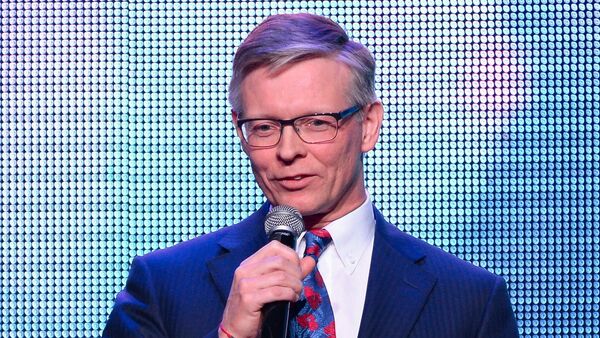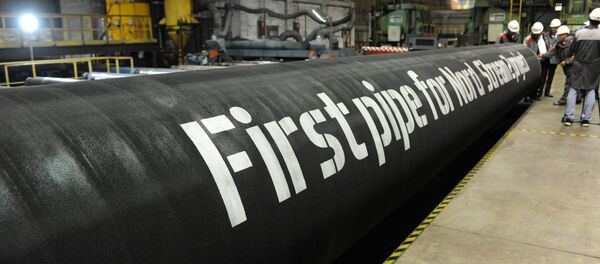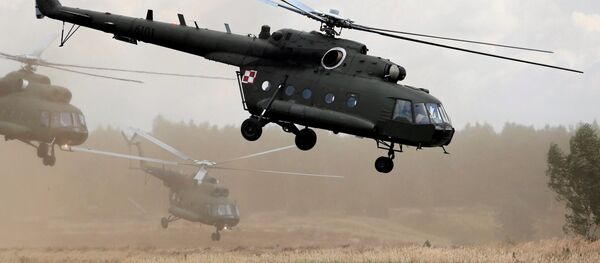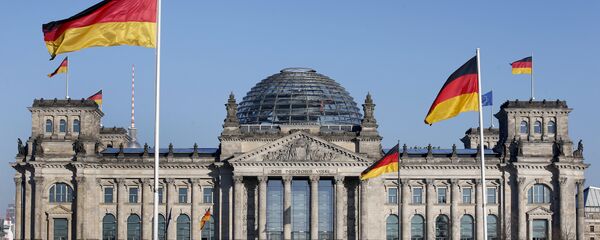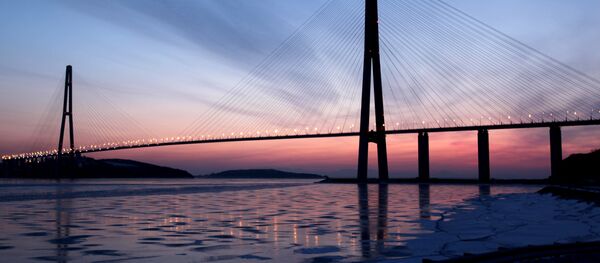MOSCOW (Sputnik) — Sweden's policy toward Russia is not aimed at isolating the country, and Stockholm is willing to enhance dialogue with Moscow despite disagreements in certain fields, Swedish Ambassador to Russia Peter Ericson said in an interview with Sputnik.
"We don't want to isolate Russia. On the contrary, we want to improve our contacts, even though they are based on these principal disagreements," Ericson said.
The ambassador added that Stockholm intended to maintain a dialogue with Moscow as its neighbor.
"We remain neighbors, there is a set of issues — bilateral, regional, global — which we most certainly want to discuss and, perhaps, even solve together with Russia. It is important to be able to do this as well," the diplomat said.
Ericson also stressed that Sweden was not among the EU states with a strong anti-Russian stance.
Swedish Foreign Minister Margot Wallstrom will visit the city of Arkhangelsk in northwestern Russia in mid-October, where Russia will hand over to Sweden chairmanship in the Barents Euro-Arctic Council (BEAC), the ambassador added.
"At the regional level, Russia currently chairs the Barents Euro-Arctic Council. A ministerial meeting will be held in Arkhangelsk in mid-October, and Russia will hand over the chairmanship to Sweden. Our Minister Margot Wallstrom will be there," Ericson said, adding that Russian Foreign Minister Sergey Lavrov would also attend the meeting.
On Nord Stream 2 Pipeline Project
Russia submitted an application to the Swedish authorities for the construction of the Nord Stream 2 gas pipeline in September 2016. Nord Stream 2 AG representative in Sweden Lars Gronstedt expressed his hope in May 2017 that Sweden would review the application before the end of this year.
"We have very little legal opportunities to hinder, even if we wanted to. Perhaps Nord Stream-2 has negative consequences for the EU's energy security, but we have no legal grounds to say 'no'," Ericson said.
On Meddling in Parliamentary Election
Stockholm is concerned about the possible external interference in the Swedish 2018 parliamentary election, the country's ambassador said, adding that no evidence of such meddling is likely to be publicly disclosed.
"Various journalists, researchers and authorities have noted attempts of Russia, it is difficult to say whether [these were the attempts] of the Russian state or some Russians, to influence the debates in Sweden. This is not directly related to the election. I do not want to exaggerate this but this exists," Ericson said.
The diplomat noted that the Swedish authorities had concerns on possible external interference with the country’s election. However, "it is unlikely that any evidence of [election meddling] would be released to the public," Ericson pointed out.
Sweden’s parliamentary election is set for September 2018.
Western countries, including the United States as well as a number of EU member states, have repeatedly accused Russia of the involvement in their electoral process. Russia has repeatedly refuted such allegations, with Foreign Minister Sergei Lavrov stating that there had been no proof to substantiate them.
On NATO Membership and Defense Budget
Sweden's position regarding the membership of NATO will not change under the incumbent government, Peter Ericson, the ambassador in Moscow said.
"We determine the Swedish security policy ourselves. For Sweden non-accession to military alliances is a political choice which has been made but which also can be changed at any moment… The incumbent government stated that the non-accession to military alliances, non-accession to NATO remains in place, but at the same time we increase our own capacities… and closely cooperate with other countries and organizations," Ericson said.
Sweden does not expect military aggression from a specific country and is increasing its defense budget just to be safe, Peter Ericson added.
Earlier it was reported that the Swedish government agreed to increase the country's defense budget to 2.7 billion kronor ($334 million) per year in the period from 2018 to 2020. It was also decided to resume universal military service, which was canceled in 2010, from January 1, 2018.
"The general situation in the field of security in Europe has deteriorated, and therefore Sweden, like all other European countries and some organizations, takes action. This is not because concrete aggression is expected," Ericson said.
Sweden needs to take measures so that it can defend itself, if necessary, the ambassador explained.
"Of course, we do not expect an attack from the US or from Norway or Denmark, and at the same time we do not expect an attack from Russia, either. But there is a risk, and in general, the circumstances have deteriorated, so we need to take action. This is not because of a specific threat, but just to be safe," Ericson said.
On Tourism and Business
Sweden hopes that the number of Russian tourists in the country will become the largest among tourists from non-EU states, Swedish Ambassador to Russia Peter Ericson told Sputnik.
"The Russian tourism in Sweden reached its peak in 2013, after that there was a decline by around a half… After the decline of the tourism flow, the Russians are, if I am not mistaken, at the second place in Sweden, the first are the Chinese. That’s [from the countries] outside of the European Union. I hope you will outrun the Chinese," Ericson said, adding that after the drastic fall of the number of Russian visitors in Sweden in 2014, the tourist flow is starting to rise again.
Ericson added that Sweden was the quickest among the EU member states to process visa applications for a Schengen visa.
"As far as I know, we return the passport within two days," the ambassador specified.
The diplomat explained that shopping weekends in Stockholm and eco-tourism are the most popular kinds of tourism in Sweden.
"There are enough places to visit in Sweden, and I am convinced that the increase [of tourism flow from Russia] will continue," Ericson stated.
Swedish companies stay at the Russian market despite its difficulties because this market is interesting for them, Ericson added.
"All the Swedish companies have been here since the 1990s, they have some experience of surviving crises, for example, those of 1998 and 2008. They know that sometimes the situation can be better, sometimes it can be worse, still, they stay in Russia because Russia is an interesting market for them," Ericson said.
The ambassador noted, however, there were certain difficulties and specifics on the Russian market.
"Russia is not the easiest country for business, it is not a secret, still the Swedish companies are staying there," Ericson said.
Ericson named IKEA, Volvo, Scania and H&M among the most well-known Swedish companies on the Russian market.
"Some [Swedish companies] experience the surge in demand, the increase in sales this year, especially Scania, Volvo, Construction Equipment," the diplomat noted.
Over several recent years, IKEA has been engaged in judicial proceedings with Russian businessman Konstantin Ponomaryov over the rent of equipment by the company in St. Petersburg

